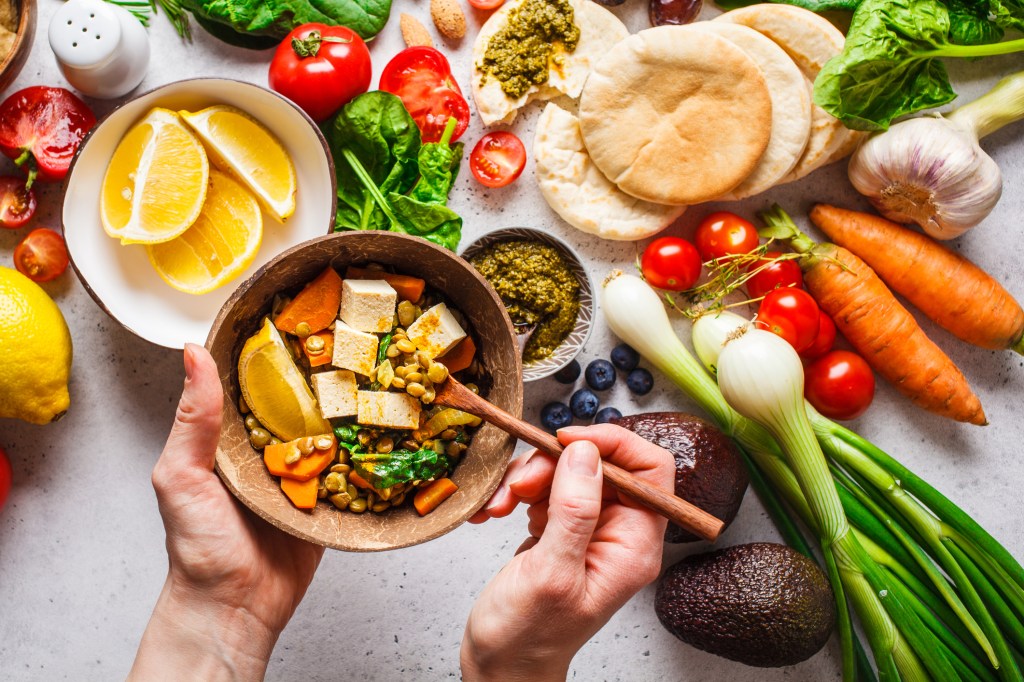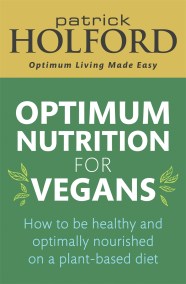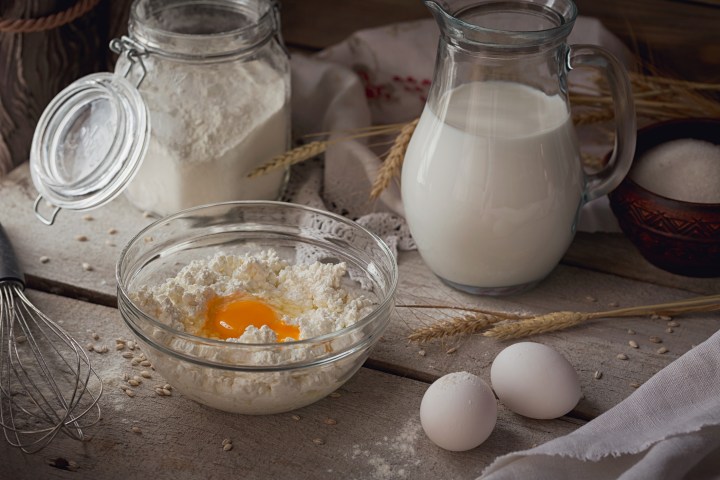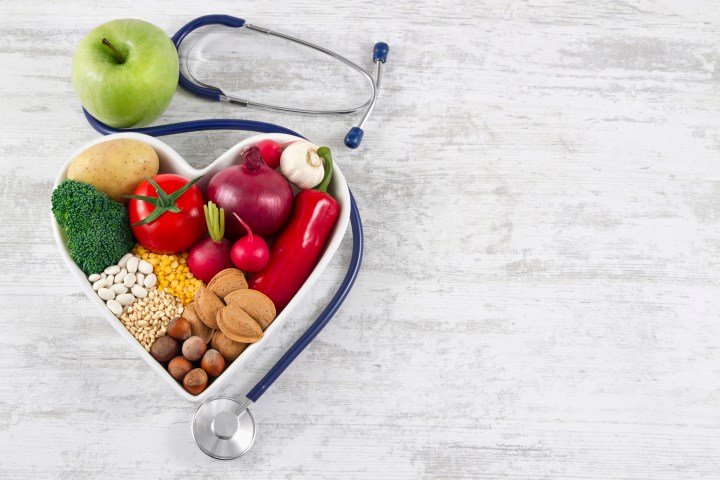How to achieve optimum nutrition while following a vegan diet

We know that a plant-based, vegan diet is healthy. But how easy is it to incorporate it into our lifestyle? Are there any other steps that need to be taken to ensure our body is getting the nutrients it needs? In Optimum Nutrition for Vegans, Patrick Holford, bestselling author of over 25 health books, shows you how to achieve optimum nutrition while following a vegan diet.
There are many compelling reasons for becoming vegan, ranging from ethical concerns about animals and the need to reduce meat consumption for low-carbon living, to personal choice: perhaps it’s the food you like and you feel good eating it. Whatever your reasons, my purpose in this book is to make sure that you do it in a way that will optimise your health and that of your family. I want you to be a super-healthy vegan. In 1984 I founded the Institute for Optimum Nutrition with the purpose of researching what kind of food and diet might be the key to optimal health, and to train nutritional therapists. In those early days I set our nutrition students an assignment, which was to become vegan for a week – so no meat, fish, eggs or dairy products. I did this myself for over a year. Many people experienced substantial improvements in their health and learnt how to expand their repertoire of foods, menus and meals to accommodate the reduction they now had in their food choices. There were very few packaged or pre-prepared foods that would tick the vegan box in those days and next to nothing that one could eat in restaurants, so we discovered how to make a rich and tasty variety of dishes from vegan ingredients.
How Vegans Can Achieve Optimum Nutrition
To be a healthy vegan you need to get enough protein and essential fats, and avoid eating too many high-sugar carbohydrates. In addition, you need to focus on, and potentially supplement, the nutrients that are hard to get in sufficient quantities from plant-based foods alone: for example, vitamins B12 and D and the omega-3 fats EPA and DHA.
The Importance of ‘brain’ Fats
Fats are an important part of a vegan diet (any diet, in fact). They were unfairly demonised for many years, starting in the 1980s, which led to an increase in carbohydrate consumption, but two fats in particular are vital for your health. These are the two known essential fats – omega-3 and omega-6. They are essential because the body can’t manufacture them, so they have to be provided via food or supplements. Omega-3 and -6 are especially important for the brain and nervous system, and therefore your mental health. The main sources of omega-3 fats are certain foods that grow in a cold climate, including walnuts, flax and chia seeds, but also leafy greens, seaweed and algae; and oily fish. The main plant source of omega-6 fats is seeds, especially those grown in a hot climate. Sunflower and sesame seeds, and their oils, are a good example.
In practical terms this means eating daily:
• A small handful, or a heaped tablespoon, of walnuts, pecan nuts, flax seeds, chia seeds, hemp seeds and/or their oil. (Pumpkin seeds contain both omega-3 and -6 and are the next best thing. Sunflower and sesame seeds are higher in omega-6, so don’t go overboard on these.)
• One or two servings of dark green, leafy veg – especially those that grow in colder climates such as kale, broccoli, Brussels sprouts – or a serving of seaweed such as nori.
When using oils in cold food, such as salad dressings, you could also use flax, walnut or hemp seed oil. Chia oil is also delicious but is not widely available.
Want to find out more about hot to eat a healthy vegan diet? Try Patrick’s new book
We know that a plant-based, vegan diet is healthy. But how easy is it to incorporate it into our lifestyle? Are there any other steps that need to be taken to ensure our body is getting the nutrients it needs?
In Optimum Nutrition for Vegans, Patrick Holford, bestselling author of over 25 health books, shows you how to achieve optimum nutrition while following a vegan diet. This book features 100 delicious, easy recipes that will nourish your body and your brain. Patrick will also show you how to ensure you are getting enough protein and brain fats, control your sugar and energy, and other other steps that need to be taken for overall health for vegans.
Whether you already follow a plant-based lifestyle or you simply want to incorporate more meat, dairy and egg-free meals into your week, Optimum Nutrition for Vegans will be your guide for overall health.








